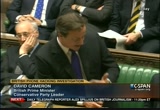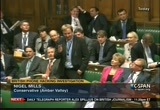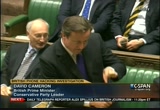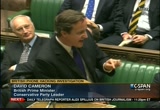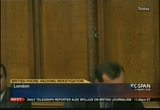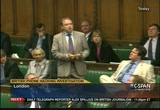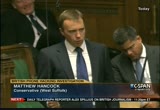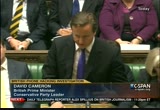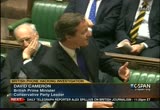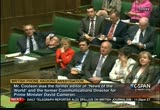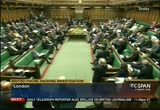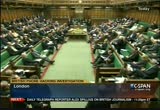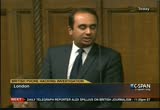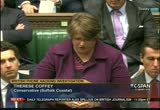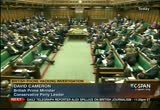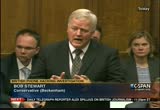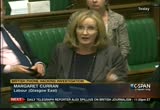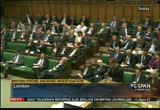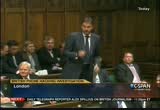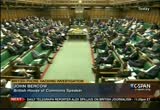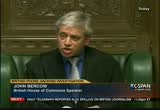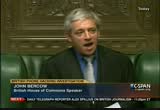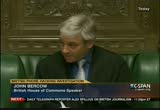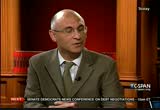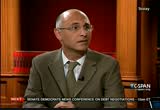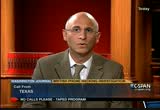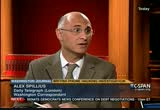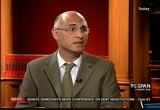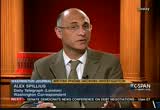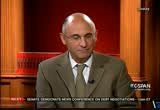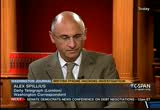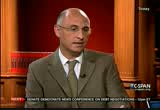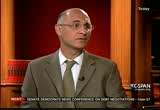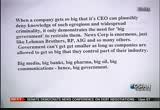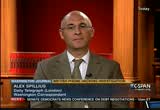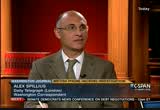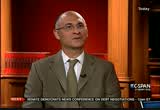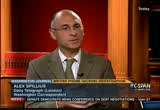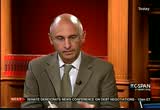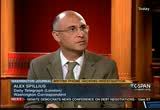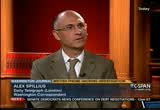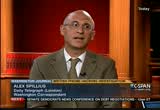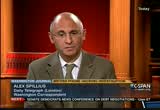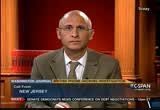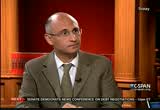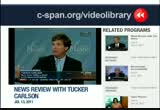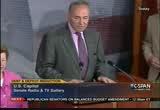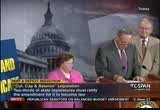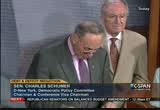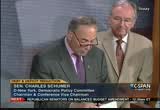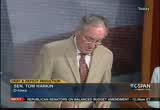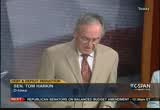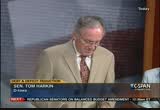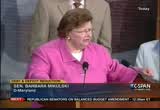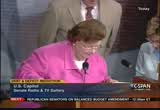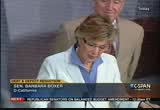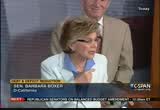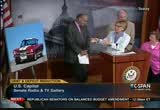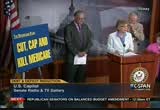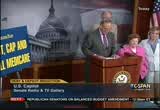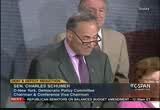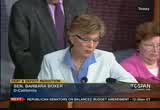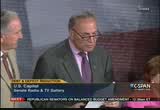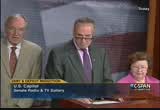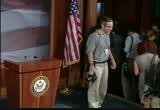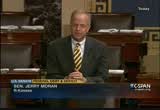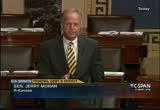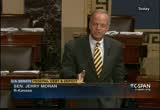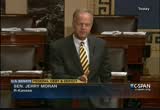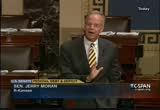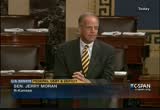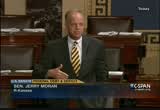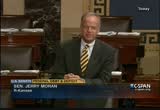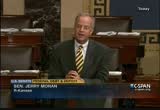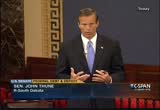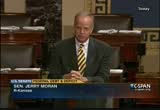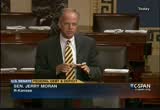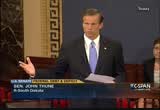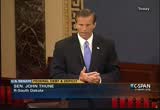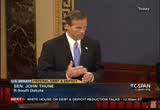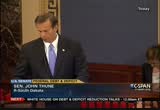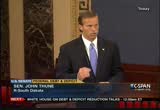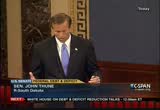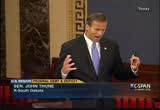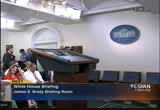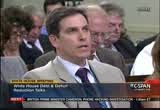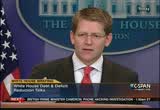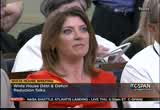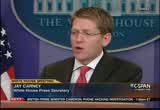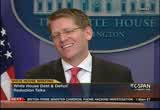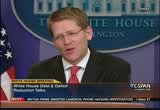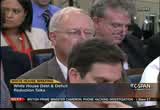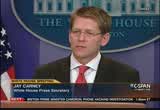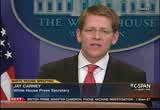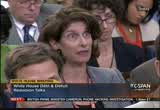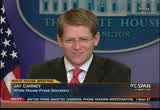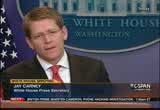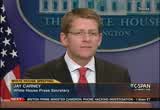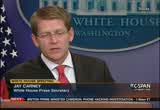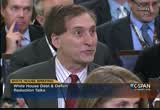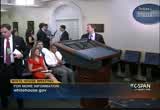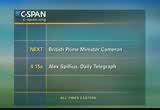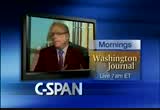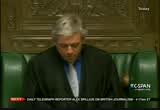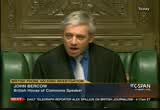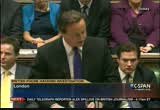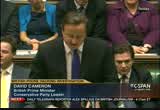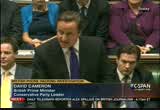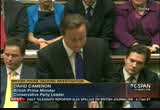tv Capital News Today CSPAN July 20, 2011 11:00pm-2:00am EDT
11:00 pm
coulson knew about hacking, it will not just seen a profound apology. it will also be an issue for prosecution. >> the prime minister has taken the lead for transparency. will he encourage the opposition white wires. good they did. >> since this election, we have sent up all the contacts with have with others to follow suit, not just former labor leaders, but current labor leaders as well. >> can he confirm that the company or any of its directors did not make any donations to the conservative party? >> i do not want to give an answer that is not accurate. >> i welcome the prime minister's attempt to sort out
11:01 pm
the politicians from the media in the long term. will he recommend that local council -- spin doctors so that we can truly be rid of that culture. >> there is an enormous amount of money spent by local authorities on local newspapers on their own free local newspapers. that is injuries to the newspaper industry -- that is ious to the newspaper industry. >> the spoke with one of two people who said colson was present during the phone hacking. can the prime minister comment on that? if not, why not? >> i had a number of conversations during his employment. in the and, the sworn allegations is why he left.
11:02 pm
there is a criminal investigation were people are being interviewed by the police. none of these things happen properly and the less government and their happening now. >> as a matter of basic courtesy, members standing and seeking to catch my should not simultaneously be fiddling with their electronic devices. i thought the point was so obvious as a matter of courtesy, but apparently not. >> will the prime minister ensure that the activities will also be in the investigation that he anatase. >> would do not like hearing of it also because they know they had people working on downing
11:03 pm
street whose conduct was absolutely despicable. that is a contact they can avoid .ppearing >> th -- cannot avoid. >> that appointment prevented him -- is it not fundamentally obvious to everyone that the prime minister made a dramatic error of judgment in appointing and nicholson -- andy colson -- >> order, order, order. the questions are getting longer. the need to be more concise. prime minister. >> yes. >> the commission has published two reports on the risks of phone necking. no action was taken at that
11:04 pm
time. >> i think it is a matter of request. both benches have to accept this and that warnings were heated and we have to recognize that there were issues with media groups that make that happen. we have to get to the bottom of how we stop that from happening again. >> will the prime minister tell the house about the conversations she had about the bskyb bid with mr. murdoch and rebecca brooks? >> all the details of the meetings and explain all of the conversations were appropriate and she could ask the members of her party to be equally transparent. >> does the prime minister join
11:05 pm
me in hoping that this is the end of the ever increasing rise of misconduct by police officers across the country? >> the police have to have an operation, have to have a relationship with the media, both at the top level to communicate with the police's right to do strategically, and at the operational level to help them with crime. we have to try to make sure they do not have an inappropriate relationship. >> prime minister, have you ever mentioned the word "bskyb" in the presence of rebecca brooks? >> does not raise serious questions about how the previous limit operated that members
11:06 pm
opposite thought that it a prepared for the prime minister to be brief on police matters? and the e-mails that were released, didn't show how professional his chief of staff is? >> i thank my hon. friend for putting that on the record. the judgment he reached was done by the leading police officers and by the head of the investment committee. >> returning to new wallace, -- neil wallace, he knew about mr. wallace. others around him knew about mr. wallace's role will be for them. does he not feel let down by them? >> the point and it is this, to the best of my knowledge, the first and was sunday. when we have the information about that, just as we have been transparent about all of the
11:07 pm
media meetings and all the meetings with the moguls and everything else, we can then make that information available. while he is doing that, he should have a word with his party leader and asking to be equally transparent. >> mr. speaker, does the prime minister agree that the vast majority people in the country who we represent are absolutely fed up with the party-political point-scoring that has been going on here? will the warmly welcome the setup of the inquiries today and the prime minister will be able to get on with his work of improving the economy of this country and representing this country in the international field? >> you're very wise about this. they want us to get on with this and fix this problem. they know that both targets had done some sucking up to the
11:08 pm
media in their time. >> i am extremely grateful, mr. speaker. in his statement, the prime minister said that, if it turns out i have been lied to, that will be the moment for profound apologies. i have to say this more in sadness than in anger. i invite him now -- i do not know if it is the expedient thing to do -- but to give an apology. >> i am deeply sorry and deeply regret the uproar that this has created. the second point i made is that with 20/20 hindsight, i would not have offered him the job. to be fair, he would not have taken the job what i do not believe in politicians doing is shucking off their responsibilities. i made this decision.
11:09 pm
i employed this person. i defended his record in government. if he lied to me before, then that is an even deeper regret than what i have expressed today. i am telling you what i feel about it. that is no more than you can do. >> the prime minister has challenged us all to do with the consequences of these events. should we opposition then be more attentive to their relationship with news international. and response to whether they could yet to unveil policies, he said, you already bask in the sun. [laughter] >> that is if you like my point. we all indigenous activity. the public knows that we engage in this sense -- we all engage
11:10 pm
in this activity. the public knows that we all engage in this activity. the chancellor has many bright ideas. he has discussed many things. in the end, i never seek to shuffle off my responsibilities. this was my decision. i am accountable for it. >> one of his main charges in the statement was that the commissioner 10 minutes later -- when he was secretary, he was in that appointment. >> haven from nigeria, who is able to follow the had secretaries excellent statement where she made this point referring to what the former home secretary had said. i think in this blows away part of what he says. crush -- >> in the early part
11:11 pm
of this year, particularly in the question of undertakings, given your offer from an organization, which has already proved to be in the undertaken, has the prime minister discussed the undertaking being given to anyone with news international? >> i basically took myself out of the whole decision making process about bskyb. having looked at what has happened, i would argue that the culture meters for secretary of state has taken a series of absolutely correct decisions on the basis of legal information that he received. >> there are very few places in the world where the executive would subject himself to two hours of questioning.
11:12 pm
one thing it does say that there are elements within this house that seem to make the medical -- make political cuckold of the situation. >> the point is he is right. he is right. he is right to draw attention to the fact that, at the heart of all this, is the issue of -- >> i have been enjoying listening to the questions and answers as well. and i would like to continue. >> it is at the heart of all this as we have these discussions. we must bear in mind the victims of phone hacking. >> one of my constituents is editor of "the evening star." is it fair to say that local
11:13 pm
newspapers have not been suffering this. >> they play a vital role in the health of our local democracy and the society. the inquiry has to go wherever the evidence leads. but i think regional and local newspapers are an important part of our country. >> i believe that more members of this house will welcome and release support the inquiries that the prime minister has settled to get down to the issues. but will he emphasized the urgency so that we can get back to dealing with the other issues? >> i think the hon. gentleman is right. we have to practice. we have to do with it. we have to do it in a way that restores public confidence. but then we have to get on with the business that our
11:14 pm
constituents passionately care about. >> given the importance of bskyb in this country, why did the prime minister take himself outside of the decision making process? >> i will go further and said that it may be the case that we should take politicians and take all -- and toss all decisions about media mergers altogether. but you're trying to win over newspapers and television and all the rest of it so that the more you can take yourself out of decisions from beatty's structures the better for all concerned. i do not understand why he does not get that. >> it is quite clear that relationships between our political leaders and leadership in the media will continue. therefore, would my right hon.
11:15 pm
friend agree with me that it is up to political leaders and this house to get a system for dealing with it in a sound, healthy, and transparent? >> this is an opportunity to reset the clock and we should take it. >> can i ask the prime minister to disassociate himself in the comments from they comments of -- despite the debate's going on, there is no one named on the opposition benches who are seeking to make political capital -- can i ask the chancellor to pay attention to the last part of my remarks? i can assure this chamber in deepest sincerity that there is
11:16 pm
no one here seeking to make political capital out of the phone hackings. let me tell the prime minister directly. there is no one person -- >> i must ask the hon. lady to assume my question. >> will the president disassociate himself from questions on this side that are looking to make political capital? >> the point about this place is that people can watch with has been said and they can form their own judgment. >> as a part of public record and part of public inquiry, will the prime minister ask them to publish any record of meetings held between special advisers at the numbers 10 and 11 downing street?
11:17 pm
>> as tempting as it would be, under our system, politicians in wonderment cannot order the publication of papers of another government. >> the home affairs select committee issued a report at 5:00 a.m. this morning, which was critical of police were there was evidence last week where they intend to pass the buck to alleged wrongdoers by not cooperating with police. would the prime minister agree that allegedly wrongdoers' often do not cooperate police and that they should follow wherever the evidence dixon? >> that is what everyone -- wherever the evidence takes them? >> that is what everyone wants. we all wish them well in what they're doing. >> one group of people that we
11:18 pm
have not discussed today or the hugely powerful trade union bosses, and the extraordinary influence they have over the lead opposition. will they look into their contacts with rupert murdoch and his organization? >> after 136 questions, it is in genius to come up with something entirely new. i pay tribute to my hon. friend. i'm sure the judge will be able to look at all the vested interests and the power they wield in our country. >> i was advised it was well 138. but we will sell for 136 members who have had the opportunity. i thank everyone for participating. we do want to move on to the debate. i will briefly attend to points
11:19 pm
of order. >> during his statement, the prime minister said that there were 45 government documents. i'm sure that many people would like to see evidence of that. the contest for the prime mr. to arrange for that evidence to be placed in the government library. >> he has raised -- the issue he has raised is a continuation of the debate. >> is it in order for witness to refuse to answer select committee standards? -- select committee questions? >> what i would say to the hon. gentleman is that this is the first and never heard of this. witnesses before select committees should seek to be as helpful as possible to committees and they have a
11:20 pm
general obligation to furnish those committees with answers to the best of their ability. i think that answer is helpful to the hon. gentleman. >> the n.y. times revelations contained no new information. but the police considered the information you enough to bring forward their inquiries. >> there will be full opportunity in the full debate that is about to follow. point of order. >> in general, mr. speaker, is it in order for any right hon. member this house to make a fabricated statement in the dispatch box? >> members should take responsibility for their own statements. of course, members should not make defamatory statements about
11:21 pm
other members. but the hon. gentleman is raising in his question in the abstract. for me, it becomes hypothetical. the premise to wisely does not seek to respond to hypothetical questions. >> in your earlier remarks about reviewing the security given the incident yesterday, will you ensure that the public continues to have the right to go to select committees and their right to -- >> that is right to attend meetings in the way the hon. gentleman describes. it is a very long established and precious freedom. i think it would be quite wrong for me to seek to constrain or circumscribed an independent investigation in what it can cover and what it can recommend. but the point the hon. gentleman has made is an important one.
11:22 pm
i underline its importance. i think many people will share his point of view. i think we should now move to the main business. we have come now to the main debate. the prime minister. >> that was prime minister david cameron and members of the british house of commons on the phone hacking allegations by news international. we spoke with alex spelius. he joined us on "washington journal" for about 30 minutes. host: now we are going to return to the topic of the phone hacking investigation in the u.k. joining us is alex spillius, washington correspondent for "the daily telegraph," an
11:23 pm
english newspaper which is the largest circulated daily broadsheet in the u.k. mr. spillius, we asked our viewers earlier this morning and i will ask you the same question -- overall, what is the impact of this phone hacking scandal as you see it right now? guest: well, it is huge. the story started years ago and built up gradually d. one person at "news of the world," and more people and more people. the story that came out about the murdered schoolgirl's voicemails the impact exploded the store into a whole new dimension is involving -- it is involving police at the highest levels, journalists, at downing street. it is going to the core of the british establishment. for the british, there has not been a star of this magnitude for some time -- a story of this
11:24 pm
magnitude for some time. host: as somebody who works for a british newspaper in washington, how you define the differences between the u.s. media and the british media? guest: good question. i have often thought about. there is a bit more for a tradition of being disrespectful of authority and assuming people in authority are not so good. the great rallying cry of the british media is to get the so- and-so's. it is an intensely competitive market. there is about a dozen national papers covering the old country. they are all competing for the same audience, whether it is the tabloid market or the more upmarket market. it really is a cutthroat business. in america, you have one or two newspapers in each market and they don't have intense competition. for the likes of "news of the world," what the "news of the
11:25 pm
world" is up to -- the standards are higher in the u.s. as a whole. they tend to be more rigorous. there is an intense level of competition in the u.k. host: is it normal for british newspapers to pay for interviews, access? guest: it is standard practice for the tabloids. host: what about the broadsheets? guest: it is known occasionally. there was a big scandal about mp's expenses last year, which came from information that is the voice of -- information that is the will serve and got on a computer disk. my newspaper paid for that because they thought it was in the public interest. that is a rare instance of a broadsheet paper paying for
11:26 pm
information. for the tabloids, we call it checkbook journalism. salacious information about a night out on the town with a celebrity or pop star or encounters with celebrities. that culture has grown and become more insidious over the past 20 or 30 years. host: how would you describe, to help put it in perspective -- by the way, we will put the numbers on the screen as we continue this conversation about the phone hacking investigation in the u.k. prime minister cameron spoke this morning at a problem about it and we carry that live on c- span -- spoke this morning in parliament about it and we carry that live on c-span2. we carry rupert murdoch and rebekah brooks yesterday and we will speak about that. how do you describe to an
11:27 pm
american audience the importance of "news of the world" as the largest selling sunday newspaper in the country, and the closure of that paper? guest: it was shocking. a lot of people were shocked by the closure. it was a sudden and brutal move, and murdoch's decided that enough was enough -- murdochs decided enough was enough and they had to take this extreme step. "news of the world" set the standard for tabloid journalism. it has been a pretty low standard for recent years, but they have always been in front, always seemed to be getting the best spooks, the best gossip -- best scoops, the best gossip. "news of the world" and "the sun," the murdoch daily tabloid, were the epitaph of tabloid journalism.
11:28 pm
-- epitome of tabloid journalism the rocket. raucous, titillating tabloid journalism, which we enjoy to extan extent. host: did you know, when you were living in london, rebekah brooks at all and her work? guest: she was editor of "the sun" when i was there. she had a reputation of being a very talented, if not ruthless, tabloid editor, if every employee of rupert murdoch. often referred to as a surrogate daughter, because he admired her so much. host: when you worked at "the sun" -- guest: i did not work at "the son of."
11:29 pm
-- "the sun." she was working there when i was living in london. host: all, i'm sorry. please allow 30 days between your calls. you can also send us a tweet -- twitter.com/cspanwj, journa l@cspanwj, and you can continue the conversation on our facebook page. the conversation is an ongoing conversation, and we will be reading some of those comments during this segment of the shout. the first call for mr. spillius comes from taxes on the democrats' line. good morning.
11:30 pm
caller: good morning. mr. spillius may not be the one to answer the question -- host: have got to turn down the volume on the tv. listen to the found and go ahead -- the phone and go ahead. caller: in this country we used to have a fairness doctrine so you had equal time for each segment of politics and so forth. what amazes me is that the very conservative family values types, christian fundamentalist s, are in love with the fox news and rupert murdoch, who built his empire on porn from way back. the man is completely evil. i don't understand it.
11:31 pm
i wonder sometimes if people realize just how far back this pornographic approach of his goes. now it is even criminal. host: mr. spillius, any comment for her? guest: well, i am not sure what the caller was referring to one is saying that mr. murdoch to build his empire on porn. his most famous page of "the sun," page three, there was a topless a girl every day. he did pioneer that. i think that is gone now. but he has never been involved in the porn industry per se. i suppose there might be some irony that in the contrast between the sort of thing his newspapers have done in britain and what his politics is, the
11:32 pm
fox news cable channel here. we should at this point stressed that there is no evidence of any sort of misconduct by any of his american news outlets, be it fox or "the journal" or "the new york post." host: what is his reputation in the uk? guest: his reputation is it one of the most powerful people in the country. he owned almost 34% of the national media market. bskyb, which he on a share -- they blocked a controlling share -- is the big pay-tv service. he has been a huge figure in our public life for the past 20, 30 years, which is why so many of his opponents are so pleased that his reputation has not
11:33 pm
taken such a beating -- has now taken such a beating. host: next call for alex spillius comes from woodstock, illinois. caller: i picked up "the economist" magazine the other day, an excellent edition. on page 12, they go into their editorial basically, and it is based out of london. it says "if it is proven that news corp. managers conducted lawbreaking, they should not be running in newspaper or television firm. they should be in prison." toynbee940's, arnold wrote about challenge and response, and he is from england as well. this is our civilization's challenge at this time, to make sure that we have good, accurate news so we can participate in
11:34 pm
government. i appreciate c-span taking on this issue as it has. guest: the question does raise a legitimate point. at the moment in britain, people are reeling from all the revelations which, day-by-day. -- come out day-by-day paid when it thinks calm at down a little, there will be more about the news industry and regulation and how it needs to be changed. here the regulations were eased up in the 1980's and 1990's. all of his purchases were referred to the monopolies commission at the time, and they were approved. isthink a long hard look a going to be needed about whether it is right for one person to become so powerful.
11:35 pm
it allowed his news executives to think they could get away with breaking the law. host: rebekah brooks yesterday talked about her relationship with david cameron. here is a little bit of rebekah brooks. >> rebekah brooks was invited six times a year to 10 downing street under both the former prime ministers. she has not been invited by mae. i have set out -- the great contrast is i have set out things i have in complete contrast to the party opposite. i can say this to the hon. gentleman, i have never held a slumber party or seen her in her pajamas. host: that, of course, was prime minister cameron from this morning talking about his relationship with rebekah brooks. she talked about her relationship with the prime minister yesterday. alex spillius.
11:36 pm
guest: as mr. cameron was saying, she has been friends not just with him, but previous prime minister gordon brown, and probably tony blair, too. his point was "it is not just me." she slept over at the official country residence one time when gordon brown was prime minister. but david cameron is prime minister now and he is very close to her. in the light of what we now know about what "news of the world closed what journalists were up to, people in britain are having a heart -- what "news of the world" journalists were up to, people in britain are having a hard time believing him. he believed nothing much was going on at "news of the world"
11:37 pm
or you was just one or two journalists. if you ask, what does this mean for britain, that is probably the main impact, that trust is being broken in politics at the highest level and in newspaper journalism. i think that is a problem, and i cannot see at the moment how the trust is going to be fixed. host: next call for alex spillius of "the daily telegraph," richmond, virginia. caller: the previous caller stole my thunder in quoting "the economist" but they finished the editorial by saying "a noisy press is the best protection." and you addressed the political impact. what are the questions for the metropolitan police in terms of the alleged corruption, paying for information? that one has not gotten the prominence i thought it might
11:38 pm
have. guest: well, it is a good question. just as i said we have to look at newspaper ownership and politicians have to look at whose birthday parties, they go to, police have to look at how they operates. we have a fiber six senior members of the metropolitan police, -- five or six senior members of the metropolitan police, refer to as scotland yard, have worked for news international advising them in a pr capacity. what worked for the government. there is this kind of seedy revolving door between the police and as powerful media company. as i said, when it is calms down a little, police need to look at self-policing, especially with regard to what people do after they left. but it also seems to be an issue plane corruption. police were being bribed by
11:39 pm
journalists to provide information. that could end up, as the caller said, it has not been that big a part of the story yet. we could have police facing disciplinary hearings if not criminal prosecutions. host: do you see potential of this bringing down the camden government? guest: -- cameron government? guest: people are beginning to think that. if he had an election in six months, it would be serious. it does not look very good. the scandal last year broke a lot of trust in politicians. now you have got a prime minister who appointed someone, his former communications director, a former editor of "news of the world" when the hacking was taking place. it is hard to believe the prime minister did not know that
11:40 pm
hacking was endemic at "news of the world," so the only conclusion is that he did not care. host: how do you perceive the coziness or relationship between u.s. politicians and reporters? guest: well, it certainly can be cozy. politicians and reporters socialize together. they go to the same parties very often here in washington. but i don't think it is quite reached the level of the occasions that happened in england. the intimacy of weekends away at the official residence, it might be wrong, but i don't think you have american newspaper barons going to camp david for the weekend, which is what happened in the case of rebekah brooks. host: a couple of e-mail commenets.
11:41 pm
-- comments. that is one, to be received. -- one comments we received. next call for alex spillius comes from georgia. iraq on our democrats' line. -- eric on our democrats' line. caller: i think we need ito widen the discussion a little bit. in 1986, reagan signed a fairness act, which put the cuffs of corporate media in the u.s. democrats should be upset about that and allow corporations to spew the news or define reality as they see fit, whatever helps
11:42 pm
the bottom line of the corporation, not informing the voters. this is a national security issue. we need informed voters. if we don't have the fairness act, the corporations can tell voters whatever they feel like telling them as long as they don't tell them outright lies. but they can mislead them, and they are very good bit misleading them. and the british prime minister, the prime minister of britain, said it to parliament that he was scared of rupert murdoch. how could you be scared? if you are the leader of a country, how can you be scared of a newspaper -- host: we are going to leave it on those two points and there. mr. spillius, are you familiar with the fairness doctrine? does the u.k. have anything similar? at the prime minister is saying to parliament he is scared of rupert murdoch -- guest: coming through the back door -- host: yeah, what is the significance of that? guest: they don't want to be
11:43 pm
seen as entertaining or barack, being friendly to him. it is rare for a -- they don't want to be seen as entertaining rupert murdoch, being friendly to him. it is rare for the dignitaries -- host: number 10 is half a mile from parliament or so? guest: yeah, short walk. that was one of the most interesting parts of the testimony yesterday, i thought. rupert murdoch going through the back door under three prime ministers. host: what about the color bang's comment about the fairness doctrine? are you from -- the caller's comment about the fairness doctrine? are you familiar with that? guest: i understand the argument, but the changes in the 1980's to open up the media market. you could say there is a balance on cable, at least. you have a fox and msnbc. one does better commercially
11:44 pm
than the other, but i will not go into why that may be at the moment. host: what about the uk? guest: much more heavily regulated. not in print, but in the broadcast, you have to of both points of view. it is all tightly regulated. host: next call for alex spillius comes from virginia, david. caller: if the british politicians' phones were being attacked, what would stop rupert murdoch from attacking democrats' fault lines in this country? anthony weiner's email was attacked by a supposed right wing -- was hacked by supposed right wing blogger.
11:45 pm
guest: we don't have any evidence that there was hacking in the u.s. if there was, this story is going to get bigger. if evidence emerges of a phone hacking here, especially of politicians, news corp. is in even bigger trouble than they are now. host: how long have you been working in the u.s.? guest: four years. host: how would you compare parliament to congress? guest: that is a good question. as we saw david cameron being grilled, is a live the enterprise. i think we are quite proud of that. i speak to politicians here who wish we had an equivalent. debate here can be stodgy. host: is very popular when we.
11:46 pm
on c-span as well. -- it is very popular when we air it on c-span as well. what is fleet street mean? guest: the print unions had a very tight grip on the industry. in the early 1980's, murdoch wrote that, and he took his newspapers out of the street, -- murdoch broke that, and he took his these papers out of fleet street and 2to a new site. there were protests. fleet street is still used as an umbrella term for national newspapers. host: have you talked to colleagues who work for news corp.? what is their view of this? guest: they are keeping a pretty
11:47 pm
low profile, i have to say. my colleagues who work for news corp. work for quality newspapers, "times of london," "sunday times." one said that hopefully this will blow over soon. i'm not so sure. there are lots of celebrities that "news of the world" wrote about here. "news of the world" had a bureau here for years. it is hard to believe that they did not get into phone hacking as well. host: "wall street journal" this morning, a murdoch publication -- "murdochs are grilled."\ several articles within "the
11:48 pm
wall street journal" about the testimony yesterday. here is "the times of london." "murdoch's defends" is the headline. what was the headline in "the daily telegraph"? guest: to be honest, the time difference, i have not seen it. i don't think it was up " murdoch's defense." [laughter] host: inside "the wall street age becomes.eo's an issue." guest: they have that done it much more thoroughly the last week or so. it raises the question about that your company -- about the head of your company.
11:49 pm
"then't think we at th daily telegraph" have been quite so bold about his age. there are people who know him well who think he was playing that up, playing up the hard of hearing and mumbling more than he does naturally, the gruffness. indulging in elderly theatrics. i don't know if he thought that ympathy.t him said spillius, what does that mean? guest: that is a highly sensitive issue. murdoch, before this crisis, was poised to take control of the
11:50 pm
bskyb, the biggest pay-tv service in britain. david cameron's government had to prove that. is now irrelevant, since murdoch has dropped the bid amid the scandal. did david cameron discuss this application with his very good friend rebekah brooks and other peopl ande -- other people at news international, the new very well and whose birthday party he went to? it does not look great. there are ways of convincing, dodging questions. it does not look great. people are going to conclude that at dinner parties behind closed doors, he was giving the green light. host: who owns "the daily telegraph"? guest: we are independently
11:51 pm
owned, two businessmen who have been in media publishing for 20 years or so. host: they have owned it for 20 years? guest: no, they have on our publication for five years. prior to that we were owned by conrad black. host: editorially, does "the telegraph" lien right and did it endorse david cameron? guest: yes, it did. host: next call. caller: i think this all goes back to george soros and media matters. it is well known that he is out to get fox. i think he may have lied about these accusations. guest: well, it is well known that media matters did not like a fox and made it their mission
11:52 pm
to point out fox's -- what they see as the unbalanced as for george soros, i am not sure what he has said about rupert murdoch and fox news. host: funder of media matters. pennsylvania. caller: this is being billed as the phone hacking. in my mind, is more about plutocracy. he is so powerful, and i don't even blame him, because we allow media consolidation. he is so powerful no one will say anything against him, because he knows he will get away with this. jude law said his phone was actor.d -- he is an who would say anything against this man when you control so many things? you would be crazy. guest: that is a good point.
11:53 pm
media ownership would have to be limited in the u.k. people were afraid for him to. politicians would not oppose him, and even individual mp's -- there were people who were afraid to say anything against him, because "news of the world" might say something against me. he did have a great deal of power. host: james murdoch's reputation -- he is based in london, right? guest: he switches between london and new york. we did not see much about him before this business t. he came across as corporate, somebody who had been coached. i am not sure his position will last. some people have said he will be a high-profile casualty of this. host: what about chase carey?
11:54 pm
guest: chief operating officer of news corp., lined up to be taking over as chief executive for rupert murdoch, which would lead him as at chairman, but he would not be involved in the day-to-day running. given the fact that he is 80, i would be surprised if that was not being discussed already before this happened. host: james murdoch is the fourth child of rupert murdoch. what about the other three? guest: elizabeth murdock runs eight production company, married to -- elisabeth murdoch runs a production company, married to matthew freud. it there is another son who was involved in the family business,
11:55 pm
less so now. host: a tweet to you, mr. spillius. guest: the fbi are in the preliminary stages, looking into allegations contained in a "daily mirror" reports that "news of the world" tried to access to voicemail of victims of 9/11 attacks. the fbi are on the case and we're not sure how far it will be taken. the death of the whistle-blower -- very sad. years ago we trained on the course together as colleagues. it is very sad, and it makes the price is deeper. you cannot directly -- and makes that crisis deeper.
11:56 pm
you cannot directly connected. he had issues with drinking and drugs. host: his issues with drinking and drugs were a wall mount? -- were well known? guest: yes, when he told this to "the new york times," his old colleagues at "news of the world" pointed out he had addictions. he was credible. having known him when we were much longer, he is somebody whose heart was in the right place. he was tired of working and living this lie. host: news corp. was terminated payments to the private investigator. what is the significance? guest: the significance is they
11:57 pm
akept going with payments to people were being investigated. the suspicion was they work trying to make sure -- it does not look good if you keep paying people under heavy suspicion, especially if they were not on the payroll. if they were paid job my job -- job by job, as it were. it is typical, the company's reaction to the bank close one thing, they think this is -- thing, theyone think this is over, and then that they are under fire for paying people. i am not sure the company knows how to stem the bleeding at the moment. host: we have about four minutes left before the house of representatives, to session.
11:58 pm
new york. caller: good morning. i watched all the proceedings in parliament yesterday. i was not very convinced by people questioning murdoch and his son and brooks. i thought scotland yard was above reproach. it really shocked me to see what has penetrated into the police force, the law enforcement of the government. also, how come all politicians cozy up to these people across the atlantic? it is both sides. the appointments made a not thoroughly vetted before they are appointed? guest: i think is a very fair point. a lot of britain has been shocked by the revelations about
11:59 pm
scotland yard. the british police have a reputation as uncorrupt and fair, so that has shocked a lot of people. as we said earlier, the force is going to have to look at imposing some sort of system for analyzing and checking who people talk to for payments, the jobs they take up after the date be the service. the second part of the question -- host: i apologize. twitter comment. new jersey, john on the independent line. caller: good morning, gentlemen. i would like to ask alex if the reason why journalists in great britain are so aggressive to get the story is because the law system is you are guilty until proven innocent.
12:00 am
the other point is, yesterday, rupert murdoch i looked like -- rupert murdoch looked like junior soprano on the tv series. guest: well, i missed that part of "the sopranos." i will have to catch up. host: rebekah brooks was arrested. do you number status? gues -- do you know for status? guest: it is a little less serious than it is. it means you have been taken in for questioning. none of the people at "news of the world" had been charged yet. some have been arrested. the next to watch for is being taken in for more questioning, and then charges being brought, which could obstruct police business.
12:01 am
host: how are tabloid journalists viewed in britain, coming from somebody who is a broad sheet reporter? is it "the new york times," "the >> tomorrow, we will get an update on the debt ceiling negotiations. we will also talk about the senate began of six plan. later, david clark on the dog frank banking regulations measure that was signed into loss a year ago. -- later, david clarke on the d
12:02 am
odd-frank banking regulations measure. we will have live coverage at 5:30 eastern for the space shuttle atlantis' landing. negotiations continued at the white house today with congressional leaders on raising the debt ceiling and making budget cuts. yesterday, the house passed spending cuts which the president said he would veto. the president praised a bipartisan plan offered by a group of six senators and said that the leaders should use it as a blueprint. later, the british prime minister takes questions at the house of commons on the phone hacking investigation. >> if you want to know what is
12:03 am
happening, this is not so hard. c-span has an archive that goes back to 1987. you can watch anything that happened in the house or senate chambers right there on your screen. there are sources of information that were unimaginable 20 years ago. >> the c-span library makes it possible to follow washington with instant access to events in washington. this is all free and share a bowl. -- shareable. >> c-span radio is airing a historic oral arguments in the supreme court. >> this panel highlights the injury to the entire community
12:04 am
12:05 am
>> thank you for coming. i am pleased to have my colleagues to be part of this event. last night, the house passed on a virtual party-line vote a plan to avoid of substance but full of political pandering. we have 12 days left before the nation defaults on his first time in history. to many republicans are moving farther away from compromise. we don't have any time to waste on showboats and political theater. we need to get back to reality and work together to prevent a catastrophic default.
12:06 am
the scheme is dead on arrival in the senate. this would wreak havoc on our country's seniors, the middle class, military preparedness and our standing in the world. their plan is the ryan plan on steroids. instead of chastened by the overwhelming rebuke of their house budget that dismantle medicare, the republicans are doubling down. the plan takes damage imposed by the rise in plant and multiplies it. it starts within 10 years and it results in seniors pain 2005 hundred more per year for medicare then even the rhine plan would require. $2,500 more in come then there ryan plan. the 74% of seniors that oppose the plan does not -- did not like it because it did not cut
12:07 am
medicare too little. it would also cut social security. it would force deeper cuts down the road. it would make the drastic cuts while providing constitutional protections for tax breaks for millionaires, billionaires', and special interests. even ending a single tax loophole would require a 2/3 vote in both houses. in other words, it would require the same number of votes in congress to close a single tax loophole as it would to eliminate the freedom of speech clause from the constitution. if legislation is an expression of a party's priorities, the republicans are saying in a loud clear voice, we rather cut benefits for seniors than close a single tax loophole. we would rather pick a pocket of the middle class is that of ending tax breaks for a single
12:08 am
millionaire or billionaire. it is simple, the president opposes this scheme and has threatened to veto it. the american people have oppose this scheme and a democrat will oppose this team and will make sure does not come close to passing the senate. it is time with the republicans to end the political shenanigans, to drop their dead on arrival plan to kill medicare and begin working with democrats to solve our fiscal crisis. the clock is ticking, all eyes are on us, we need to act responsibly. >> >> thank you, senator schumer and my colleagues for being. with good reason, this is called the cut, cap, and kill medicare bill. this is more like an imputation, cutting the legs out from underneath the federal
12:09 am
government. this is a decapitation of the power to respond to the needs of our country. this will are the dismantling of medicare as we know it as well as the cuts to social security and other programs. the sad reality is that american along has a two-party system. one of our two parties has changed into a kind of a cold driven by a single other fixation and obsession, preserving and expanding -- expanding tax breaks for the rich at all cost. this would make it all but impossible to raise revenues in the future. this would permanently locking the benefits of special tax breaks for the wealthy as well as the outbreak is 15% tax rate for hedge fund billionaires'.
12:10 am
millionaires and billionaires get the royal treatment but it would be the middle class who is devastated by the cut, cap, and kill medicare bill. let me focus on medicare. where did the republicans come up with this idea of capping this spending at 80% of gdp -- of gdp? this is not an arbitrary number. this is a number with a purpose. the last time federal spending was at 18% of gdp was in 1966 before medicare to cold. got it? they want to roll it back and kill medicare. the most elementary budget arithmetic dictates that you cannot limit the federal budget to 18% of gdp and continue to sustain medicare. not unless you're willing to cut the rest of the federal budget by 50%. this new assault on medicare comes hard on the heels of the so-called ryan budget.
12:11 am
what was the centerpiece of that? it was to dismantle medicare and replace it with a private doctor program with seniors paying 2/3 of the cost. republicans have now opened up and two front assault on medicare. the republican budget takes a direct open approach, it dismantles medicare. now, this so-called cap, cut, kill program takes an indirect approach to chile in medicare. in the future years, it would simply to fund medicare could do it would put the federal government in a fiscal straitjacket, allowed to spend no more than in the mid 1960's. at a time when the elderly population was half of what will be in the town ahead. there you have it, a so-called balanced budget amendment that armlocks in tax breaks for the wealthy, takes an act to social security and medicare.
12:12 am
frankly, this type of uncompromising ideological extremism should have no place in our democracy. >> this radical republican program would like to cut, cap, and balance. president obama said that this is doubt, dodge, dismantled. it ducks the real issue that we have to raise the debt ceiling and put ourselves on a sustained path. it dodges the programs that we really need to target, like tax break earmarks, and it dismantles the social contract. once again, the radical right is
12:13 am
more worried about protecting their next election than protecting the greatest generation or investing in the next generation. what a sham. what a scam. i would be tempted to just blow it off if it were not so cool, stupid, and dangerous. this is cruel because it in fancy new rules about how we will tax social security, what we will do to medicare. this is stupid because it does not solve our problems. it is dangerous because it could bring our economy down. it does cut come to kill, and tax medicare and it could very well kill the future of our country. it cuts spending to 1965 levels. that was 46 years ago. 46 years ago. making $8,000 a year was
12:14 am
considered a good salary. do you want to go back and make $8,000 a year? i don't think so. when you think about what the average social security benefit was at that time which was about $1,200 a year, i don't think we want to go back to that. do we really want to go back to not having medicare? sure, we need to reform it, but do you want to and medicare? i don't think so. under the republican rules, they would substitute medicare as a guaranteed benefit when your 65 to a guaranteed -- for an insurance company. -- when you are 65 to a guaranteed profit for an insurance company. in their constitutional amendment, they would protect tax earmarks. tax earmarks for the billionaires. this is why we oppose it. let's talk about specifics.
12:15 am
the average social security benefit is $15,000 a year. a 20,000 plus a 20% cut means that they would cut $3,000 a year. -- a 20% cut means that they would cut $3,000 a year. so security was to be a guaranteed benefit. a guaranteed benefit, not a guaranteed gamble. seniors on now facing the bearer of the market. shouldn't they have to face the pull of these political shenanigans? when you are old and sick, you should be able to count on social security and medicare and you should have a federal government that acts responsibly. i believe that we should and the shenanigans that going on in the house and vote it down in the senate.
12:16 am
>> before i speak on the cut, cap, and kill medicare plan, i want to make a plan about the debt ceiling -- a point about the debt ceiling. if we don't raise the debt ceiling, america will become a deadbeat nation. we cannot allow the greatest country in the world to become a deadbeat nation and not pay our bills or pay our debt. we cannot allow americans credit rating to be lowered. think about this. congress has raised the debt ceiling 89 times since the 30's. we cannot be the first congress to send america into default. i find myself quoting ronald reagan. i will do again. "the full consequences of the
12:17 am
default or even a serious prospect by the u.s. is impossible to predict and austin to contemplate. denigration of the full faith and credit of the u.s. would have substantial effect on the domestic financial markets and the value of the dollar in exchange markets could to the nation can ill afford to allow such a thing." that is ronald reagan. i would never do this on your birthday or any other day. i want to tell you why we are so strongly opposed to this plan passed by the house republicans. yes, they call it cut and cap. they are right to do that.
12:18 am
it would cut and capped the hopes and dreams of our seniors, all of our children, of our middle class families, of all of america. why it do they do this? why do they cut and cap our hopes and dreams? to protect tax rates for the millionaires and billionaires. it is quite obvious. they call them the job creators. job say, i don't tax the graders. the fact is that if you look at the biggest job creation in this country, small business, only 1.4% of them earn more than 450,000, 3% earn more than 250,000. that is just so much bull. let's put that baby to rest. when john stewart stars make fun of you for constantly saying job creators and they don't know how to say the board millions and
12:19 am
billionaires', so they can up with the slogan which is false on its face. cuts and caps the hopes and dreams of america, kills medicare as we know it, making deep cuts in programs that force seniors to pay thousands more out of their pockets. we already heard about medicare from senator schumer. 2500 on top of the 6000 out of park it, the ryan budget calls for. let's think about it. 2500 added on to 6000 more out of pocket. $8,500 that the average senior aaron's -- average senior earns. forget it. america is a great nation because we look forward. this republican plan takes us back. this goes back to the 60's. i want to show you a picture
12:20 am
from the 60. there, you go, the mustang. that was it. that is cute. most people would not buy this today, it got about 12 miles to the gallon or less. in any event, it says it all. if i had another picture, in addition to this being the most popular car, the number 1 song in the country was by a "the monkees." what are they doing? this is backwards. shuck says this is the most fun press conference you have ever gone to. -- chuck says this is the
12:21 am
most fun press conference. let's take that down. they're going back to the formula that relates to the percentage that we spent of gdp. the american population was less than 200 million, now it is more than 300 million. life inspected c was 70 years old. a couple of us might not be here making jokes. today, it is 79. do you want go back to those days? the average per person cost of health care then was $1,500 a year. today, it is 8000. how can you have a budget in this century that goes back to the last century and it does not make any sense. we cannot go back to the past. in closing, we need a plan that protect our families, not puts them at risk.
12:22 am
we need a plan that reduces this deficit. i was proud and many of us here are proud to work with president clinton when we not only balance the budget but we created surpluses. when i heard senator lindsey gramm say that he did not remember us balancing the budget. we did it. we did it several times. you don't need an amendment to the constitution to balance the budget, folks, you just have to do it. you have to do it. we proved that we can do it. let's not have these games and go back to the sixties. let's get a deal here and let's do it right and let's save medicare and let's save the hopes and dreams of our families. >> i would like to thank my colleagues for their eloquence
12:23 am
and heartfelt discussion today. we're ready for questions. >> we know that this will not pass here but we do have this gang of six framework, they are circulating at the letters and signatures, are any of you will -- rnase you going to sign a letter praising the gang of six? >> any time the democrats and republicans can come together on something here is a good thing. the fact that republicans are coming out for revenues is certainly something of a breakthrough. they have not done that before. we hope it shows that they're willing to compromise. we're running out of time. we need to assure the world that we will not default on our debt. so, this afternoon, leader reid is meeting with senator warner to see what we can do and see if this can be incorporated into a deficit deal. i think we all look forward to
12:24 am
hearing more after that meeting. >> one of the key things is reducing the cost-of-living increases for social security. >> to not get into any of the specifics. leader reid said he is meeting with senator warner. >> do you think that this is the most likely way forward? >> senators reid and, all working with each other at the same time. i think that they both need to realize that the august 2nd deadline is looming and defaults would be a disaster for us. as i said, senator reid and warner are working to see if anything can be done. we do know that we have that august 2nd deadline.
12:25 am
>> given the opposition, do you think it makes sense for either chamber -- >> the leader has suggested that we continue to stay here because of the problems that loom. i think most of us are making plans to be here this weekend, not because of the markets but because this is a huge and complicated deal. two weeks from today is august 2nd. remember how the senate works. anyone can hold up the bill for an amount of time. the cbo will have to score. remember health care, how long it took them to score the details. we don't have much time. >> i want to speak as someone
12:26 am
who works on wall street a long time ago, in the sixties. you say, the reason we're here on the weekend is that in case everything fails, we don't want it to affect the market. the markets are affected whether we stay here or not. we have to solve the problems. the market understands this. your premise was given the way the house is looking at a compromise. i don't write off the fact that after they see that their plan is not going anywhere and i am assuming that you will vote on the plan.
12:27 am
they will see how we get out of that nightmare scenario. the fact is again all they have to do is looking at their -- and understand each don't play fire when it comes to the full faith and credit of the u.s. >> implicit in a lot of questions is somehow we have reached this point because there is a debate and to fight between democrats and republicans. that is not true. that is absolutely not true. i know of no democrat in the house or senate that is willing to let this country defaults. however, on the republican side, you have the republicans were saying, fine, let the country defaults. michele bachmann was going run by state saying she would not vote to increase the debt limit.
12:28 am
she is one of the leading contenders for the presidency. the debate is between republicans and their fringes. keep that in mind. democrats are willing to do whatever is necessary to pay the debts that we wrapped up in the past. they are not willing to pay the bills. they are deadbeat debtors. they ran up the bills and they don't want to pay. again, lest it clear about this. 0.1 democrat out to me who was willing to let this country go into default. you would find all kinds of republicans were willing to let this country go down the tubes on their ideological beliefs.
12:29 am
>> the american people are learning about this. as people learned the real consequences of default, they now are letting us go into default. there also for our point of view in having a balance on addressing the deficit on both revenues and cuts, not just from one side of the ledger. >> when we get rid of the cut, cap, balance bill? >> leader read and mcconnell are looking to see if they can move up the timetable. you have some republicans who want to spend as much time on this. putting it kindly is wasted time. move it up.ng to the way the senate works, a handful of people can hold it up.
12:30 am
>> what specific cuts are you and the other senators willing to live with? >> you have seen the budget we have put out which has cut we don't like. the large majority of democrats voted back in june to in june to make cuts we don't like. we have shown we are willing to do things that pain us very much so we don't default. our colleagues have not shown a thing. we will see what today yields. thank you. [captioning performed by national captioning institute] [captions copyright national cable satellite corp. 2011] >> next, we will hear from two former house members, jerry
12:31 am
moran, and reactor -- and reaction from senator john soon on how to reduce federal spending. >> thank you very much. significant happened yesterday in the house of representatives. i'm pleased with the outcome of the passage of cut, cap and balance. i think we have a serious responsibility here in the united states congress to see that we address the economic circumstances we find ourselves in, and certainly the way we do that is important. i'm one who believes that it would be irresponsible not to address the debt ceiling. but i also believe it would be irresponsible only to address the debt ceiling without adequately taking into account the economic circumstances we're in and the tremendous debt that our country faces. there is no way that we can continue down the path that we are on.
12:32 am
and while it's easy for us to make accusations, the reality is this country through its congress and through various administrations have overspent year after year after year. the fact that 42 cents of every dollar that we spend is now borrowed tells us that we cannot continue down that path. one of my town hall meetings this weekend, this past weekend back in the suggestionwas we'ret in what benefits we get from government, but let's do this in a fair way and let's do an across-the-board reduction in federal spending. and the suggestion by the constituent was, well, maybe if we all just took 5% off of what we receive, we'd be fine. well, i appreciate that attitude, but it fails to recognize the magnitude of the problem. reducing federal spending by 5% across the board will not get us out of the financial circumstances that we're in, will not restore fiscal sanity
12:33 am
to our nation. and so, while we are about between now and august 2 seeing what we can do to raise the debt ceiling, in my view, we have to come together with a plan that addresses the long-term financial condition of our federal government. i am a supporter of cut, cap and balance and was pleased by the broad support that legislation received in the house. it's my understanding that we will now consider that legislation here in the senate this week, but i already read the press reports and the political pundits who say that legislation is dead on arrival in the senate. well, i would encourage my colleagues not to reach that conclusion. it may be the one and only path we have to succeed in getting accomplished what we need to accomplish in the next two weeks. and it may be that this is one of the, if not the only one, very few measures that would pass the house of representatives. we have now received in the senate a message that says this
12:34 am
is something that we are willing to do. and for a long time i've been told as a senator there is nothing that will pass the house of representatives that raises the debt ceiling, and yet we saw last night that wasn't the case. so let's not be so quick to say that the senate will not address and seriously consider and potentially pass legislation based upon cut, cap and balance. in some circles this, concept of cut, cap and balance is considered radical, extreme. cutting spending is not extreme. that's what every kansas family does when the budget gets too tight, when we've overspent, when the credit cards are maxed. we reduce our spending. and, you know, it is unlikely that we could go out and say i need a raise to solve our problems. our employers are not that sympathetic. we ought not be so quick to say we need a raise. we ought to say what can we find within government that we can reduce, that we can cut. the idea of capping is certainly
12:35 am
not radical. for the last 60 years, our country has averaged 18% of the gross national product in spending by the federal government. in the last couple of years that average has increased to 24%, 25%. it would not be radical to move us back to the days in which we were living with 18%, which seems to me to be a significant percentage if we would go back to the days in which only 18% of our gross national product was spent by the federal government. and finally, balancing the budget that,'s not a radical idea. amending the united states constitution, in my view, ought to be done rarely and with great regard for this divinely inspired document. but the constitution allows for an amendment process, and in fact it's been utilized to solve many of our country's problems and challenges over the time of history. and it's not radical 49 states
12:36 am
have provisions that require them to have a balanced budget in some form or another at the end of the year. and so amending the united states constitution to say we're not ever going to get back in the mess that we're in today certainly is worth pursuing. i think perhaps of the cut, cap and balance provisions, perhaps it's the constitutional amendment that's the most controversial among my colleagues. and i certainly would express an interest to work with others to find the right constitutional amendment, the right language and amendment to the united states constitution that met their concerns. so this cut, cap and balance seems to me to be the path forward, and the senate should pass a version of cut, cap and balance to not only allow the debt ceiling to be raised, but to allow the debt ceiling to be raised only if we become responsible stewards of american taxpayer dollars. i actually have a fourth component of cut, cap and balance. i would say it's cut, cap,
12:37 am
balance and grow. the last time our fiscal house was in solvency, was solvent was back at the end of president clinton's administration. and in part, republicans and democrats couldn't get along well enough in those days to spend more money on big programs. there was legislation that was passed that supported in a bipartisan way by president clinton and republicans in congress to limit spending. so there was some spending restraint. but the reality is the last time we had our fiscal house in order and were spending less money than we were taking in was a time in which the economy was growing. if we really want to address the issue of balancing our budget, we should focus much more attention than we have on growing the economy, putting people to work and allowing as they work that the taxes will be collected. the greatest opportunity we have to improve people's lives is to
12:38 am
create an environment in which jobs are created, in which employers feel comfortable in investing in the future and buying plant and equipment and putting people to work. and so while it's cut, cap and balance today, we need to make certain we don't forget, in my view, that fourth component: grow the economy. and in my view, that means a tax code that is certain and fair, that doesn't change, that is something that a businessperson, a family can rely upon, and it's also a regulatory environment that allows businesses to have the opportunity to grow their business. the most common conversation i have with a business owner in kansas walking through a manufacturing plant, some small business that manufactures a piece of agriculture equipment that's pretty common in our state. the most common conversation i have is, senator, what next is government going to do that puts me out of business? if that's the mind-set, how do we ever expect that businessperson to reach the
12:39 am
conclusion that they have the faith and the future to invest in their plant and equipment and in hiring new employees? we need to make certain our financial institutions, particularly our community banks, are not hamstrung by significant regulations that discourage them from making loans and create uncertainty about the ability to do that. so a tax regulatory and access to credit environment that says now is the time to invest in america and to put people to work. so, mr. president, i'm here to urge my colleagues to seriously consider, not dismiss cut, cap and balance. and upon its passage, for us to immediately return to the progrowth agenda that allows for people to have the faith in -- t the future of their country is back and we return to an american that the next generation of americans can understand the american dream can still be lived. i thank the floor for
12:40 am
consideration in speaking on the senate floor today and i yield back my time. a senator: mr. president? the presiding officer: the senator from south dakota. mr. thune: mr. president, i appreciate the good words of my colleague from kansas. he comes from a state where they understand that the role of the government should be limited. they understand the importance of living within your means, of not spending money that you don't have. and i suspect that the senator from kansas has had a long and distinguished career in public life, but before coming to washington, d.c. to serve in congress, also was a state legislator. my guess is that when he was a member of the state legislature in kansas that they had to balance their budget every year. i would ask my colleague, mr. president, if he could perhaps shed some light on what his state of kansas does year in and year out in order to get their budget balanced, to make sure that they're not spending more than they take in. i think that's, as he pointed out, something that most families in kansas, i would say most families in my state of south dakota, those are
12:41 am
decisions they have to grapple with all the time. you don't always have the luxury of being able to just borrow more. most states don't allow that. my state of south dakota doesn't allow that. also certainly not in our states, probably very conducive to saying we're just going to raise taxes on people and on small businesses, which requires then that we've got to make hard decisions about spending. i would just through the chair ask my colleague from kansas if perhaps that might have been the way they went about dealing with their fiscal crisis in the past? mr. moran: mr. president, i thank the gentleman from south dakota and would indicate that, yes, kansas is one of those states, one of those 49 states, in our constitution we are prohibited in almost always living beyond our means. and it's been something that kansas legislature and governor has lived with you throughout
12:42 am
the history of our state. the solution to the problem in kansas is not a cry for more revenue. it's a recognition that spending in difficult times has to be reduced. it's the restraint that we desperately need in washington, d.c. that's so common in state capitals and families and businesses across the country. and so, while i've always indicateed to kansans, while we have this debate every year about how to balance the revenues with expenditures and it's not an enjoyable debate, we are fortunate in kansas that we have to reach that conclusion, and it's something that we need in washington, d.c. for a long time the politics, the political talk in washington is that we're too likely to spend and tax. well, there's also a problem with spending and borrowing. and we are now suffering the consequence, and we are not immune from what we see in greece and italy and portugal and ireland. if we do not solve this problem
12:43 am
that we face today in a responsible way, it will be solved for us by the markets, by those who we borrow money from determining we are no longer credit worthy. we don't have to worry so much about that in kansas because we have a constitutional provision that requires our legislature and governor to reach the right conclusion. and it's why i thought the debt ceiling was the opportunity for us to force ourselves, this debate on the debt ceiling was the opportunity for us to force ourselves to do the things that politicians don't always like to do. thank you, mr. president. mr. thune: mr. president, just to the point that the senator from kansas was making, he talked about higher interest rates and the impact of not dealing with the fiscal circumstance the country finds itself in. and you look at what's happening in europe. a three-year government bond interest rates are around 19.4% for portugal, 28.9% for greece and 12.9% for ireland. think about the impact in this country if we had interest rates
12:44 am
go back to what is even a 20-year average, we would see an additional $5 trillion -- just about $5 trillion in additional borrowing costs in the next decade alone. that's if we went back to the 20-year historical average for this country. not to mention going to what they're looking at in countries like europe, at these 19%, 20% interest rates. think about auto loans, think about home loans, think about about student loans, think about about business loans, all those things that we rely on in our economy and that families across this country rely on in order to carry on their daily lives. if you were looking at those kinds of interest rates, that's the type of interest rate sensitivity that we have. and if we don't get our fiscal house in order, we could very well end up like many of these countries, and that would be devastating for our economy. the most important thing that we can be doing right now, mr. president -- and the senator from kansas pointed this out -- we need to put policies in place that actually grow the economy and create jobs. i also will support the cut, cap
12:45 am
and balance proposal that's before the senate today because i think it does important things. it cuts spending today immediately. it caps spending in the near term and puts in place a process by which we balance the budget in the long term, a balanced budget amendment. it's interesting to note, if you go back historically, i want to read something for you, mr. president, that president ronald reagan said 29 years ago this week. he led a rally of thousands of people on the capitol steps calling for a balanced budget amendment. this is what he said -- and i quote -- "crisis is a much-abused word today, but can we deny we face a crisis?" end quote. that's 29 years ago at a time, mr. president, when the federal debt was $1 trillion. we face a debt 14 times as high, $14 trillion, and under the president's budget, would literally double in the next decade. we have got to get our fiscal house and our spending in order. the senator from kansas also
12:46 am
mentioned the size of government as a percentage of our entire economy. if you go back to 1800, the formation, the early years of our country, 2% is what we spent on the federal government. 2% of our total economy. this year we're area over 24%, in that 24%-25% range. if you look at the historical average, it is about 26%, what we have spent as a percent of our entire commitment of it means we're spend spending more at the federal level and the private commie economy is shrink. we want to see an expansion of the private economy, where we put policies in place that enable our job creators to create jobs and we get the federal government smaller, not larger. when you are looking at a debt crisis like we are, you don't grow and expand the size of government, you make government smawmple you get the private economy growing and expanding and creating jobs much that is how you ultimately get out of the situation. well, we've got policies in
12:47 am
place right now that are making it more difficult and more expensive for our small businesses to create jobs. anywhere you go in the country -- in my state of south dakota, elsewhere -- you talk to small business owners, you talk to farmers and ranchers, what they will tell you is the policies, regulations, taxes coming out of washington, d.c., make it more expensive and difficult for our job creators to create jobs. if you look at the data on that, it is pretty clear. since this president took office, we've got higher unemployment by about 18%. we've got more people unemployed than we did when he took office, we have a 35% higher debt, we saw spending go up in the last two years alone, up 24%. the number of people who are receiving food stamps is up by 40%. all the data, all the tools by which we can measure economic progress and growth, demonstrate that the policies that have been put in place by this administration has been a complete failure what. we need, mr. president, is a
12:48 am
change in policies. and it starts by capping federal spending -- or, cutting federal spending, capping it in the near term and putting in place a long-term solution, a balanced budget amendment like so many states have in place, like the senator from kansas mentioned that they have in his state of kansas, like we have in my state of south dakota, where our state governments have to live within our means. they can't spend money they do not v that is the problem we have in washington, d.c., today. in terms of our small businesses, there was a survey that was done by the chairman of commerce in which they found that 64% of the small businesses that responded to the survey satesaid that they're not goingo hire. 12% said they'll cut jobs. why? half of small businesses listed economic uncertainty as the main reason. they are concerned about what's going to cowment of washington, d.c., they don't know what the policies and regulations are that are going to be imposed on them and what it will do to their cost 6 doing business. as a consequence, they are hunkering down and trying to
12:49 am
survive. we need to change that. we change that by getting federal spending under control. cut, cap, and balance is an important step that that process. i'm pleased that the house of representatives passed it, sent it over here. i would argue to my cleelings -- i would toorg my colleagues that this is the best thing we can doing to get our fiscal house in order and get it on a more us sin stable path going forward but also help get our economy going forward again and get jobs created. you can't do it by making government larger. if that was true, the stimulus bill that was passed last year would have brought unemployment down. we are facing 9.2% unemployment today. we see an economy growing at a very slow rate. we need to unleash that economy. and the way that we w. we do that is by cutting spending in washington, d.c., making federal government smaller, not larger, getting that amount of spending
12:50 am
as a percentage of our entire economy back into a more historical norm, working to ensure that taxes and regulations stay low on our job creators in this country. that's why i fundamentally object to the -- what the president and many of his allies here in congress want to do with regard to the debt crisis, and that is increase revenues. you cannot -- you cannot create jobs in this country, you cannot grow the economy by increasing taxes on our job creators. i can't think of a single tax that you could on our economy that would actually create jobs t would make it more difficult to create jobs, more difficult for us to get out of this economic downturn. i hope my colleagues will support cut, cap, and balance understand that it will get a big vote in the senate and get this country back on a more sound fiscal setting and >> now we get reaction from the
12:51 am
white house on debt ceiling negotiations and the cut, cap, and balance bill from yesterday. president obama met with republicans and democrats after his news briefing. from the white house, this is an hour. >> no warm-up speaker today? >> not today. ok. good afternoon. thank you for being here at the white house. this is your daily briefing. before i take questions, i have a brief readout. you might want to answer that. last night, the president called harry reid, john boehner, mitch mitchell, and house minority leader pelosi to discuss progress we are making -- mitch mitchell -- in addition
12:52 am
to being a great drummer for jimi hendrix, also the guitarist in "guided by voices." let's motor on here. working on it. sorry. the president spoke with the senators, leader pelosi, and speaker boehner, to find a balanced approach to deficit reduction. the president will hold a meeting at the white house today to o'clock 50 p.m. with house and senate democratic leadership. those are my announcements. democratic leaders. >> not republicans.
12:53 am
>> as we have other meetings to announce, i will announce them. but the meeting today is with the senate and house leadership. they're still working on the manifest. i believe it is four. let me get back to you on the coverage. >> why are republicans not involved and how did that go? >> the individual conversations were useful and productive. we have been having conversations and meetings with different groupings of leaders and rank-and-file members. we will continue to do that at the this meeting is the next one up. we will get back to you with announcements of other meetings as they happen. >> what does he want to
12:54 am
accomplish? >> he will discuss the purchase for for the reduction, a balanced approach. obviously the role of the gang of six is adding to the momentum behind the principle that the best way to do this -- the only way to do it, really, to get significant deficit- reduction, is to do so that we go after all the drivers, our long term debt, including non- defense spending, defense spending, entitlements spending, and tax code spending. to further those conversations, we are, as the president said the issue, -- the president said, at the 11th hour, we need to meet, talk, counsel, and narrow down what our options are and figure out, in fairly short order, which train we're riding into the station. right now, there are multiple options being discussed, including the work as senator mcconnell is doing with senator
12:55 am
reid and others. there is the gang of six proposal. there is framework and other proposals out there. through the course of these meetings, we have to find out what we will do to ensure that, at the very least, as we have talked about, the united states does not, for the first time in u.s. history, default on its obligations. >> can you discuss of the president's challenge in swaying democratic leaders to go on with changes in entitlements? >> let's not leave it at democratic leaders. leaders in both the house and the senate, this is an important point that to raise. -- that you raise. while we certainly have spoken a lot of and made clear that -- a lot about and made clear that republicans need to compromise and except that they will market -- and accept that they
12:56 am
will get 100% of what they want, is a two-price system and requires compromise. the sinister for democrats. the point that the president has been making in -- the same is true for democrats. the point that the president has been making is that we need to make some tough choices in order to ensure that we can reduce our deficit, get control of our debt, precisely because that is what is important for economy -- for our economy and allows us to make the absolutely necessary investments we need to make in education, in research in -- in research and development, infrastructure to allow the economy to grow. that is the case he has been making to democrats and he will continue. -- continue to make. >> what about the debate about the real deadline, considering congress's timetable for
12:57 am
legislation? when you run at a time to get -- can you explain how it is possible, or when do you run out of time to get something as big as a gang of six legislation through? are we not there? >> i was talking -- i was listening to the comments that the omb director made over the weekend. there is still time. if everyone is seriously committed to making a big deal, obviously, time is running short. in terms of the deadline we have talked about, august deadline is a real and fast deadline. we must take action to deal with our debt, raising the debt ceiling, before them. -- raising the debt ceiling before then. but there is still time to do something significant if all parties are willing to compromise. the parameters of what that might look like are well known, especially to the participants in the negotiations that the president oversaw last week. i may get the question, is it the 22nd? is it the 23rd? this is an estimate about what
12:58 am
it takes to move something through congress. there it is this ineluctable modality of how congress works that you have to accept, that things can turn up and be voted on and reconciled all on one day. you have to move back from there. you have to guess and we have to leave it to the leaders of congress to provide their best estimates, rather than us. >> will you have to do with the a, a plan or a short-term deal so you can take more time to negotiate a package? >> we are, as you know, supportive of the efforts by senators mcconnell and read to -- reid to craft a full bath provision or solution to make sure that we take the necessary action on raising the debt ceiling. when i was talking about which train we would ride into the station, we are on multiple trains are now.
12:59 am
we need to be sure that the failsafe option is there. even if we pursue aggressively the possibility of doing something bigger, the president has been clear that he will now -- not support a short-term extension of the debt ceiling. there's no reason why we can not come together now and get something significant done. what we mean by that is that we would not support a short-term extension. -- extinction absence of an agreement of a longer deal. that is not exceptional. obviously, if both sides agree, we have to go over the details up. -- of that. because we know what we're talking about here, if there is a willingness, and we believe there is a growing willingness on capitol hill, to do something significant and comprehensive and balanced, we can get that done within the timeframe and by the deadline of august 2. >> let me ask you briefly about
1:00 am
libya. the french are saying they could stay in libya if he give up power. >> the u.s. position has always been that ghadafi it is up to the libyan people to decide his future beyond that. it is not up to us to decide. he needs to step down. he has lost legitimacy. he is increasingly isolated, not just from the world but from his own country. the opposition has made significant progress. the international community, together with the united states, is taking steps to recognize the provisional government and with the aid of doing maps freeing up
1:01 am
funds for the opposition to use. no longer being a threat to the people of libya. then it is up for the libyan people to determine what that means, if he is not out of the country period what our position is is quite clear. returning power. rather, giving up power and no longer being a threat to his people. ok. >> does the white house of a chance to review that? the principles?
1:02 am
>> again, as i said yesterday, there is broad support along the lines of the approach that the president took. as we look at the provisions within it, and as you know, there was some level of detail provided, and it is possible we have not agreed with any aspect of the approach, and if the decision is made that we're going to take a bipartisan approach, that we are going to take a balanced approach, the framework the president put forward, that the gang of 6 put forward, that the simpson- bowles put forward, a piece of legislation that we believe, a majority of congress would
1:03 am
support, the details of that obviously would have to be worked out, but this is savings for entitlement reform reduce defense spending. this is done in a way that protects national security. that is that you get to the $3.50 trillion and above savings that we have talked about and that the gang of 6 has talked about, so as long it as there is political will, the details, there is enough difference out there. and there is some similarity between what the gang of 6 has put forward and what the president and speaker have put together. we agree with that assessment,
1:04 am
and if the will is there, we can get down to the details. the provision of the gang of 6 proposal to declare from here that we accept or reject. the overall approach we definitely accept. they are having discussions. there is a framework with details that create momentum behind actually moving in that boat discussion. again, i am not going to make a declaration about the specifics of what the gang of 6 has put forward, particularly because of the details are not known yet. this is not a piece of
1:05 am
1:06 am
taking into account the views of all their constituents, we believe in the end, listening to the voices of the people who sent you to washington is really what you are supposed to do. there are some signs, certainly many signs of a growing willingness to consider this approach among democrats and republicans, and that is the confident the summit of easily understand the political dynamics in the congress. they are pretty complicated other willing participants among the rank and file, that this is an approach that would
1:07 am
best serve the american people, would best serve the economy and would serve the political interests of everyone, because doing the right thing in this case is good politics. we are keen observers of the dynamic up there, and we think there is reason to be optimistic that something like this can be achieved obviously, this takes a lot of work and will power. the dynamic in the congress. >> what specifically is the dynamic you are observing? there has been accepted broadly by democrats, independents, and republicans, including a elected officials that a balanced approach that requires compromise on both sides is the
1:08 am
right way to go. now, we continue to push for the biggest deal possible, which would include a balanced approach. we are also pragmatic position and realistic and not create a situation where the united states will default on its obligations. even as we pursue the bigger prize, we are working with congress to assure that there is a mechanism by which we can raise the debt ceiling or raise the debt ceiling and and do something much grander. i think it is important to note that the members of the gang of 6 represent in many ways progressive democrats and very conservative republicans. it is -- i know you are not. but this is not a distinct species within the political category that we are talking about.
1:09 am
the capacity of our elected leaders in congress to hear what the american people are telling them, hear what their colleagues are telling them, and hopefully create majorities within both houses to do the right thing. yes? >> .trying to be a little bit more specific, after the president made his statement about the gang of 6, that there is not enough time and where this is more tricky in the house, mcconnell was noticeably silent, and leader cantor was critical about the revenue components, very critical, so if the white house has a will, it is in congress? " we think there should be, and there could be, but i am not saying that will happen. it would be a failure of leadership to simply give up
1:10 am
because the odds are not overwhelmingly in our favor. and that would be true if it were the right thing to do even if the majority of the american people thought it was not the right thing to do if we thought it was. in fact, the president thinks it is the right thing to do, and the majority of the american people think it is the right thing to do, so we continue to negotiate and to look of the avenues available to us to make something bigger happen, even as we very pragmatically try to negotiate and work out something small. >> the clock is ticking, and there is this mcconnell-reid plan. mechanically, what is the advantage of pushing something that seems more like -- that what can get done by pushing it? >> again, i think it is important to note, and i tried to make this clear yesterday, the president has not endorsed the specifics -- specific of the
1:11 am
gang of 6. the president was involved with his own proposal and his own ideas that mirror what the gang of 6 was doing. it is not that we are saying that it is the gang of 6 and their plan or bust. first of all. second of all, we have the capacity to do two things at once, which is to negotiate a bigger deal. it would be a failing in a responsibility to do that because we believe a deal is possible, and we are not alone. there are members of congress who believe that, and there are some that will pour cold water on this idea. of for all, i think the idea of was notable in congress. yesterday. pat even some of the leaders i would point to and note that
1:12 am
there were some positive statements with the leaders of both parties with the gang of 6, so we press on. we acknowledge that we have to be sure but there is a plan, to be the in the united states will not default. the united states, the president working with congress, will take the steps necessary to make sure that we raise the debt ceiling and pay our bills, bills that were accrued in the past, and we continue to fight for something bigger and better that addresses the big problem here, with the sizable and said, and the drag the long-term debt problem creates for our economy. that it actually contract the economy or slows it down or reduce is job creation but enhances it.
1:13 am
24 hours proved this is absolutely not. six members of the senate, three republicans, three democrats, progressives and conservatives came together and put together a proposal to balance the deal in a significant way with our budget problem and the deficit. that is a significant deal is worth being enthusiastic about, and it happens, one of the reasons we are so enthusiastic about it is because in mirrors the approach that the president has been talking about, that simpson and bowles and others put forward and those two bipartisan commissions. one of the headwinds we have been dealing with in talking about this, as we made the case that the president is pushing for a deal and a balanced approach, we know the republicans that not -- are not in congress are arguing that we should do that.
1:14 am
what the gang of 6 put forward yesterday, and the support they got after they put it forward, of both parties, i think it is an indication that that headwind is dissipating. yes? >> the president was intensely enthusiastic about the gang of 6 plan. the president believes that the democratic leadership in the senate is also enthusiastic about it? >> i would go back to the question that and then asked. it is his responsibility, and it is a responsibility that he takes. rank-and-file but democrats and the leadership, about why a significant, balanced, the abizaid's reduction package is the way to go. i will remind you that senator durbin is a member of the gang of 6. the other, while not an original member of the gang of 6, is a supporter and a member of the republican leadership.
1:15 am
>> with democrats, to make the case to them to report on it could >> look. they will the discussion about a potential for a big deal, a potential for a medium-sized deal, and the work is being done to make sure there is a fail- safe fallback alternative if we are not able to reach agreement on.com regrettably not able to reach an agreement on a more significant deficit-reduction package, so i am sure that everyone will have important things to add to that conversation, and the president will continue to argue that since none of these are easy, and none of the votes will be easy for members of either party, this is an opportunity then to go ahead and think big and try to get something significant done that actually has long term positive impact on the economy. >> if you look at the whole gang of 6 deficit-reduction plan, it
1:16 am
is not a plan to raise the debt ceiling. it would take an enormously long amount of time to get a bill forward, so the president would receive a short-term extension alongside an agreement for a larger deficit-reduction with some trigger? >> let's turn it around a little bit. if both sides agreed to something significant, we will support in what is necessary to finalize details, but there is no extension without agreement on something big, a formal commitment on something big, so the point, we are not wave remote on the president's absolute assertion that he will not sign a series of ill defined, sort of told both series of provisions that temporarily or in a limited fashion raise the debt ceiling, and we have to be litigated this again and again, not just because it is but unpleasant, because it is bad for the economy. it sends the wrong signal to
1:17 am
everyone around the globe about washington's capacity to deal with its fiscal issues, and one of the things that i think is quite clear is if we send a signal from washington that washington works, that washington can tackle big problems, then that will have significant positive impact around the globe, and it will remind people about why the united states is the best country to invest in, why we are, as we have always been, a safe harbor in terms of the security of your investments, and that is an important thing, and we look forward to doing that. yes? >> there are six or seven republicans in the house that have not signed reform. as you understand the gang of 6 proposal, does this violate the pledge? >> well, i used to be someone
1:18 am
who analyze politics for a living. i am no longer. what is needed here is the political your note -- will to get outside your comfort zone, and that is koran true for democrats and republicans. that is significant in size in terms of deficit reduction, i will note that there have been some important voices to a pointed out, and some of them are officials who pointed out -- certainly not the president of the united states, middle-class americans. what we are talking about at the minimum pisgah ending subsidies
1:19 am
-- at a minimum of ending subsidies. i do not want to give political advisor to members of either party, but i think it is certainly a worthwhile argument to make a closing a loophole is not raising an average americans' taxes. it simply is not. when you had an unfair advantage that the makers of private jets get, with the subsidies that the oil and gas companies enjoy, and by using that money to vote reduce the deficit and allow for a more balanced package, that therefore does not require as much burden on middle-class americans, you're doing a broad swath of the american people a favor and doing it in a balanced way, so
1:20 am
that would be an argument i would make, and others that have more supply year in the gop would be making. >> the flat income tax rate? >> well, i am not going to get into the itemized specifics of the proposal and will be can and cannot support. but the president has said is that he does support tax reform. it has been reporting what a broader compromise would look like, note that it would involve some tax reform. i will be the to the folks who are actually negotiating this.
1:21 am
everything necessary for the pass legislation. this is important. this is somebody who was with tip o'neill when tip o'neill did those compromises with president reagan. he was with president clinton when president clinton had those compromises with speaker gingrich, and he is here today. this is how this works and how bipartisan compromise can work with people who are viewed as staunch progressives and staunch conservatives. tip o'neill and ronald reagan, newt gingrich, this is ample precedent for what this should work and plenty of historical precedent for members of congress to look to and say, "i
1:22 am
did what ronald reagan would have done a," or "i did whatever tip o'neill would have done." >> looking at the senate, where one member has this to a least slow things down. >> we are looking at both. we are not direct participants but keen observers of what happens in congress, and we are aware of how it works, and it's modality, so we are looking at all of these factors. >> harry reid said that there was no time.
1:23 am
this is with the understanding that you are pursuing the biggest deal possible, as well as ensuring that there is a fallback provision. you are pursuing a big deal. there is a deadline of august 2 for raising the debt ceiling. the dynamic that is created here, for better or worse, and we think now for better, it has linked these two, focused attention and focus people's minds on the need to do something specific around deficit-reduction as we deal with what is not always pleasant a very routine thing that congress has done every couple of years for as long as you and
1:24 am
i have been in washington, which is raise the debt ceiling. this is a unique opportunity. i would say these are hypotheticals, but we are committed to trying to get a deal done. we have laid down some of the markers the president has about what he will or will not do in terms of raising the debt ceiling. we recognize the mcconnell proposal note -- the proposal. i know these are being studied
1:25 am
by the leadership and the staff. >> more supportive of this gang of 6 proposal? >> he is supportive. >> the gang of 6 could " we made clear that they agreed with the many parts of simpson-bowles, including corporate tax reform, allowing the 2001 and 2003 high-and income tax cuts to expire, et -- strengthening social security for the future. the president endorse this right away and at the time.
1:26 am
1:27 am
strengthen those programs. setting aside the titans, that includes some in discretionary spending. there are cuts that are going to be required in discretionary spending, and he understands the there are some things the democrats will not want to make. bob time to get our fiscal house in order, that is high. technology, innovation, infrastructure.
1:28 am
you need to cut back in areas as much as you can. >> a temporary debt ceiling, if it was to allow it them to have what they have already agreed to? >> >> the president will not sign. there are times where we cast out the possibility -- casting doubt on whether or not they will honor their obligations. we will support the measures
1:29 am
1:30 am
1:31 am
they know much better than i am better than anyone here how much time they need to make that happen. we are obviously working on them to ensure that at the very least that they have a train to ride that gets to the station by august 2 note but allows for the debt ceiling to be raised. i said by august 2, and that is the deadline.
1:32 am
1:33 am
call to speaker john boehner? the house wasted its time yesterday? >> i think the president spoke to this when he recognized what they were doing in the need to do it but that it was time to move past symbolic votes, because we need to get past this that can be supported by both houses and the president. obviously, that measure does not have the support necessary to become law, and everyone is aware of that, so we need to move on. >> doesn't look to you as if any measure has the support to become law? >> that is what i think a lot of members of congress and a lot of the members of this administration are working on now, to see that there are things that can become law. >> getting 218 votes, what is
1:34 am
the white house doing? >> we would take more than 218, if we could get them. >> where? the republican side? or is that maybe up for discussion this afternoon? >> what we have been doing i think is pretty clear. there is a lot of public activity to argue the merits of, a, why there is no alternative to make sure the united states has the capacity to pay its bills, b, that we should be pushing for a deficit-reduction bill that allows us to put our fiscal house in order and signals to the economy, but allows the economy to grow and create jobs. it we have teasley have a lot of people who pay attention to congress, but in the end, it is members of congress who have to vote, and the leaders will take their temperature and measure the support that may or may not
1:35 am
be there for differing proposals that are put forward. i do not have any announcements to make on any meetings. right now, we have a meeting scheduled today with house and other members. do you think this might be slipping? >> i do not have any updates for you. it is time to move forward with these agreements and get it done now because these agreements have broad bipartisan support, and there is broad recognition that they will either create or support up to 75,000 american
1:36 am
jobs. but i do not have an update on the legislative minutia of how the process is going to work. >> just to clarify, the point you are making, the point you have written down there about the short-term extension, you are -- i want to make sure i understand. when you say a short-term extension absence something significant, are you talking about the mcconnell, because that is short term could >> i am not sure you were here. there is a significant difference. but the mcconnell bill does is allows a significant extension of the debt ceiling into 2013. there are some mechanisms for political cover their require votes that will be foregone conclusions, but the debt ceiling, the whole point about extending the debt ceiling for a relatively significant amount of
1:37 am
time is to create the kind of certainty that we need to ensure that the domestic and global economy understands that we are functioning appropriately, so the mcconnell provision extends the debt ceiling into 2013. correct. those are designed in a way that makes them a foregone conclusion. >> what pieces of the gang of 6 can be attached to some kind of a short-term deal that would make it acceptable? i mean, how does that work? you cannot just craft the whole thing on to it because it takes time to get it done. >> let me remind you that the gang of 6 is an important entrant into the field here of proposals that broadly mirror
1:38 am
the growing consensus, taking a balanced approach. the vice president, in the negotiations he led, there is a lot of road that has been traveled already in terms of identifying acceptable discretionary items. there is a lot of road that has already been traveled in terms of identifying things that can still be negotiated in defense discretionary spending, savings that can be gleaned from entitlement reform, and obviously savings that can be garnered from dealing with the tax code and eliminating loopholes and other measures we can take and broadly dealing with tax reform, so it is not a question of the gang of 6, in whole or in part, being grafted on to something. we know what these look like. if there are good ideas in the gang of 6 that can be put in what has already been
1:39 am
negotiated, and that can build -- we have talked a long time now about the building blocks and what needs to be done to get as beyond, say, $1.50 trillion, up into the 3' s and beyond. the negotiations that we have held here, they are aware of what is required to get there and the compromises and tough choices that need to be made to get there. the gang of 6 will be another example of explosive ideas of how to do that, in really, you are looking at a menu of options. if there is a political will to do this and a balanced way, we believe it can be done. >> this sometimes bottom lines but, today, when he meets with democrats, one of their bottom lines has been no cuts in medicare benefits, and one thing
1:40 am
that is not popular is a change in benefits to either social security or medicare if we are able to achieve something significant that we can have as a component of entitlement reform, but i think the president has also been very clear in stating that if we go in this direction, it requires some hard choices. i mean, i do not think he could have been more clear about that. that is part of the discussion that needs to be had. >> the republican bottom line, the gang of 6 requires a $1.60 trillion period that seems to
1:41 am
violate one of their bottom lines. >> again, i think there is a lot of positive response to what the gang of 6 put forward. you are thinking about this again as if this is the only way to get a grand bargain, if you will, is in every element in detail. it's what the democrats want. it's what the republicans want. it is what the independents
1:42 am
want. it is what you and i want. >> the majority leader, that he would be willing to take this debate to the american people, and there was an abc "the washington post" poll that showed that americans did not think that the president was doing enough to find a compromise here. does that not show that he is losing the debate could >> i would certainly disagree with the assessment that he is losing the debate, and i think that there is overwhelming evidence that the american people prefer a pragmatic, balanced, and significant deficit reduction package. the president made clear when he has come out and spoken to you all here but the choices that would be involved in creating such a grand bargain would need
1:43 am
to be explained and salt, two democrats and republicans, and he has, i think you have seen the president spend a lot of time discussing his views on this in the public because he understands that this is complex and arcane stuff in many ways, especially when you throw in phrases like "raise the debt ceiling, and that it is important for him to explain to the american people what is going on in washington and why he is taking the position he is taking. that is absolutely his responsibility, and he takes it seriously. there is growing evidence that the american people broadly supported the approach that he is taking, and he thinks that that fact, coupled with increasing willingness by both members think about this in terms of a balanced bipartisan
1:44 am
deal is encouraging. >> the approval rating was at 47%, which is one of the lowest since he has taken office. does this show that this is dragging the president down, as well? >> i can honestly tell you that this is about making hard choices that are the right choices to make sure that the american economy is where it needs to be, and, i mean, there is no question that even though the economy has been growing now for some time, even though we have created more than 2.1 million private-sector jobs over the last however many months, we are nowhere near close to where we need to be, and the anxiety that that creates is real. and justifiable, and this president is totally focused on making sure that he does everything he can to make sure that every american who is
1:45 am
looking for a job can get a job, and he will not rest until we get to that point. that is the way he looks at it, not in terms of what his job approval rating is. but >> given that the polls are showing that so many americans seem fed up with you will process -- >> understandably. >> he seemed optimistic yesterday. behind closed doors though, is he showing any frustration? is he fed up? >> we have had questions about this with regard pier 1 of the meetings last week. it is not that hard. the beauty of a balanced approach is that does not require draconian suffices by either party. it just requires a willingness
1:46 am
to be reasonable, and his frustration with the way the process works sometimes is when he sees the possibility right there. he is trying to convey what ought to be done, and he is seeing that now, and we have seen some movement in congress in terms of appreciation and what we believe broadly the american people expect the leaders in washington to do, and one of the times that he expressed the frustration is when he said, "look. some of what is happening here is exactly why people get frustrated with washington." that is exactly why americans get fed up, to use your word,
1:47 am
and here is an opportunity to show the opposite. this is an opportunity to show that the leaders can lead. the people who are sent to congress are the leaders, the ones who were chosen through the ballot box to work with them in washington, to get things done. this is a huge opportunity to do that, if the political will exists. yes? >> with the analogy, pushing on the various tracks. >> with absolute confidence, and none of the trains is a high- speed train. no high-speed rail year. these are slow-moving trains. yes, sir? >> if all you decide is that at least for now, you need to get something in place to get past the deadline of august 2, that will lead to the derailing
1:48 am
because there is no more. and if you continue to honor the obligations and pay our bills, after august 2, we are absolutely confident of that. leaders of congress have expressed the same confidence. we believe that we can get more than that, something much more significant than that in the time frame. if we do not, we're going to continue to do that. we have to deal with our debt, and we have to do it in a balanced way. this allows for action to be taken.
1:49 am
this will continue on august 3 and for the rest of the time that this president is in office. thank you, and then i apologize that i spent a little too much time in the front two rows, and i will remedy that next time. >> when you are talking short- term measures to finalize the details, are you talking hours or days? >> .i am not going to go beyond the language. >> do you want to go beyond the language as far as what constitutes an abundant, $1 trillion in cuts? >> i do not want to be any more specific. thank you very much. [captioning performed by national captioning institute]
1:50 am
[captions copyright national cable satellite corp. 2011] >> members of congress are waiting for details on the bipartisan senate gang of 6 deficit-reduction plan compromise. the white house has not signaled said it will support a short- term debt ceiling only if republicans reach agreement on a larger deficit reduction deal and leave additional time to get it through congress. >> british prime minister david cameron told a special session of parliament today that he regretted hiring a one-time editor of "news of the world's" as his.
1:51 am
that is next on c-span. then, we will talk about this story and about journalism in great britain. >> this week marks the one-year anniversary of the dodd-frank financial regulations act. tomorrow, the senate banking committee will hear from fed chairman ben bernanke about the new rules. the head of the security and exchange commission mary's secure -- mary schapiro and another will also testify. live coverage begins at 10:00 eastern on c-span3. and later in the day, also on c- span3, a senate panel examines medicare prescription drug prices and ways to reduce those costs. live coverage of the senate special committee on aging gets under way at 2:00 p.m. eastern. >> you are watching c-span, bringing you politics and public affairs.
1:52 am
every morning, it is "washington journal," our live call-in program, connecting you with people. live coverage of the house, and weeknights, policy forums. also, supreme court. on the weekends, you can see our signature programs. on saturday, "the communicator's," and on sunday, "q&a" and "prime minister's questions." you can also find this at c- span.org, and it is all searchable. c-span, washington your way, a public service created by american cable companies. c-span radio is airing historic oral arguments on an equal protection cases this saturday, a 1994 case of discrimination and jury selection based on gender. >> the fact that this panel seems to be all female highlights the injury when a
1:53 am
group is eliminated from the jury panel because of bias. >> listen to c-span radio in washington d.c. at 90.1 fm, online. and on satellite. >> one day after rupert murdoch testified on phone hacking allegations by his company news international, british prime minister david cameron addition to -- address members in the house of commons. the prime minister spent time talking about a a hiringndy coulson, a former entered the of to say -- editor of "news of the world." this is 2.5 hours. >> order, order.
1:54 am
>> i have a short statement to make. i was very concerned about the incident in the culture, media, and sport meeting yesterday. it is wholly unacceptable for a member of the public to treat and to be able to treat a witness in this way. it is all the more regrettable that such an incident should happen at a time when particularly over the last few days the work of this house and its committees has enhanced the reputation of parliament. i have immediately set in hand and expert investigation into what took place, the reasons for the security failure, and order of lessons to be learned.
1:55 am
>> the prime minister. >> over the past week, this has shaken people's trust in the media and in the modality of what people do, in the police and their ability to investigate media malpractice, and, yes, in politics and in the ability to come to grips with these issues. people desperately wanted to put a stop to the illegal practices to ensure the independence and effectiveness of the police and to establish this. above all, they want us to act on behalf of the victims, people who have suffered dreadfully,
1:56 am
including through murder and terrorism and you have to relive their agony all over again because of phone hacking. the public want us to work together to sort this problem out, because until we do so, it will not be possible to get back to the issues they care about even more, getting our economy going, creating jobs, helping with the cost of living, protecting us from terrorism, and our welfare and immigration systems. pet let me set up the action that we have taken. we now have an investigation that will examine criminal behavior by the media and corruption in the police. we have a wide ranging judicial inquiry to establish what went wrong, why, and what we need to do to ensure it never happens again. i am the first prime minister to publish meetings with media editors and others to bring
1:57 am
complete transparency to the relationship between government, ministers, and the media, stretching right back to the general election, and the house of commons, by speaking so clearly above the revolution of the phone hacking allegations helped to cause the end of the news corp. bid for the rest of bskyb. today, today i would like to update the house on the actions we are taking. first, the inquiry. second, issues concerning the police service, and third, i will answer, i am afraid, mr. speaker, at some length, about my role and that of my staff. first, the judicial inquiry and the panel of experts. these experts will be big campaigner and director of liberty, the former chief counselor, the former chairman of ofcom, the long serving
1:58 am
former editor of channel 4 news, the former political editor of "the daily telegraph" and correspondent of the press association, george jones, and a former chairman of "the financial times," sir bell. not only in the media, broadcasting, regulation, and policing, but chose and also for their complete independence from the parties. mr. speaker, i also said last week at the inquiry will proceed in two parts, and we set out a draft term. we have consulted with the opposition, with shares of relevance select committees, and with administrations. i also talked to the family of the girl and the campaign. we have made significant improvements to the inquiry. the relationship between the
1:59 am
press and police goes wider, we agreed that other relevant forces will now be within the scope of the inquiry. we have agreed that the increase in shall consider not only the relationship between the press, police, and politicians but their individual conduct, too, and we have also made clear that the increase should look, not just the press, but other media organizations, including broadcasters and social media, if there is any evidence that a been involved in criminal activity. i am placing in the house of final terms of reference. the panel will get to work immediately. he will aim to make a report on the first part of the inquiry within 12 months. mr. speaker, there should be no doubt, this public inquiry is as robust as possible. it is fully independent, and he will be able to summon witnesses under oath. mr. speaker, let me now turn to the extraordinary events we have seen in the la
164 Views
IN COLLECTIONS
CSPAN Television Archive
Television Archive  Television Archive News Search Service
Television Archive News Search Service 
Uploaded by TV Archive on

 Live Music Archive
Live Music Archive Librivox Free Audio
Librivox Free Audio Metropolitan Museum
Metropolitan Museum Cleveland Museum of Art
Cleveland Museum of Art Internet Arcade
Internet Arcade Console Living Room
Console Living Room Books to Borrow
Books to Borrow Open Library
Open Library TV News
TV News Understanding 9/11
Understanding 9/11